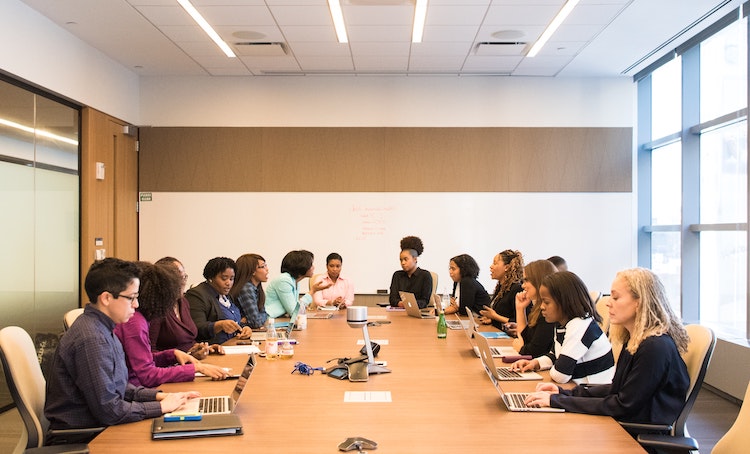It’s no secret that Australia still has a long way to go when it comes to gender equality in the workplace, especially when it comes to women in leadership. But how does the NFP sector stack up, compared with the rest of the economy?
Diversity, Equity and Inclusion
Why clear job descriptions matter for gender equity – and how to write them
There it is, gleaming at the top of your LinkedIn feed: your dream job, a high-level, well-paying position in your field. Are you qualified enough? Should you apply? New research shows that women might be less likely to take that chance than men. Businesses can take a simple step to draw more women to apply: Make it easier for candidates to know whether they are qualified. Instead of using vague language about the experience or skills candidates need in job postings, be more precise about expected qualifications. When businesses ask for specific levels of experience and skills, more women that meet those requirements are likely to apply.
This ‘tick’ can help make your organisation more attractive to candidates
While the ‘war for talent’ is a terrible metaphor, in a time of record-low unemployment almost every NFP organisation is looking hard for ways to make themselves more attractive to the best candidates.
And with more than 10 percent of Australians identifying as LGBTIQ, a June 2023 survey of 5,474 people who identify as LGBTIQ across Australia and 12 other countries found that one-third were looking to move to a more LGBTIQ-inclusive employer.
One tool that can help you to attract more LGBTIQ candidates and volunteers to your organisation – and better retain your existing LGBTIQ employees and volunteers too – is the ‘Rainbow Tick’.
3 things you can do to make your workplace more inclusive
Fundamentally, an inclusive climate is a diverse environment within an organisation that values the contribution of all employees. It is a workplace climate where people with different beliefs, perceptions and observable characteristics are able to work effectively with others, feel valued, and have strong feelings of belonging within that organisational context.
This begs the question: How does an organisation create an inclusive workplace?
Every Australian employer has new duties under the Sex Discrimination Act – here’s what you need to know
You may well have missed it, but in December 2022 changes to the federal Sex Discrimination Act came into affect. The legal changes have been made to better protect workers from sexual harassment and other forms of sex discrimination, harassment, and unfair treatment in the workplace, and they impose some significant new responsibilities on every Australian employer, including every NFP organisation.
These are the seven new standards that the Commission expects all organisations to satisfy the positive duty under the Sex Discrimination Act, plus some advice on what to do next to make sure your organisation is compliant.
How micro-accommodations can fight back against discrimination
Discrimination is a complex phenomenon, involving a mix of big and small, intentional and unthinking, acts. Sexism or racism can be a large “not welcome” sign, but it can also be a series of micro-aggressions that leave women or racial minorities feeling marginalised, stigmatised or emotionally exhausted from repeated attempts to claim their rightful place on the team or at the table.
In the guest post, Professor Rosalind Dixon from the Gilbert + Tobin Centre of Public Law offers some valuable advice for managers to help employees thrive, rather than just survive, at work.
How to elevate diversity, equity, and inclusion work in your organisation
To address systemic racism, many organisations are starting to create anti-racist diversity, equity, and inclusion (DEI) change agendas. Yet there is a wide chasm separating those organisations doing DEI work and those that are actually valuing the DEI work being done.
Here is a summary of a few key issues that Diversity Equity and Inclusion experts and their organisations currently face – and a “MERIT” framework for valuing DEI work, which accounts for both the objective and subjective notions of merit.
How to improve your job interviews with candidates who have autism
Employers are gradually getting better at recognising the value of including neurodiverse people in their organisations, and information about accommodation strategies is starting to become more readily available.
That said, these accommodations aren’t helpful to workers if they are unable to land a job in the first place. Recruitment and selection practices can inadvertently negatively impact candidates with autism.
Some simple tactics can help lessen the likelihood of this happening.
How to take the lead on preventing sexual harassment: a guide for NFPs
Sexual harassment is a risk in almost every workplace. It can cause significant physical and psychological harm to victims – and also to people who witness it.
So what can you do to ensure your organisation is creating a safe, affirming and positive environment for all staff?
10 ways NFP employers can include Indigenous Australians
A new survey of 1,033 Aboriginal and/or Torres Strait Islander workers across Australia reveals some shocking realities about experiences of racism, the lack of cultural safety and ‘identity strain’ experienced by Indigenous people in Australian workplaces.
Only a quarter of survey participants said they worked in organisations they felt were authentically committed to change – acting, rather than simply saying they were committed to act.
Drawing from the report’s recommendations, here are 10 key actions NFP organisations can take to improve workplace inclusion for indigenous staff, starting today.











